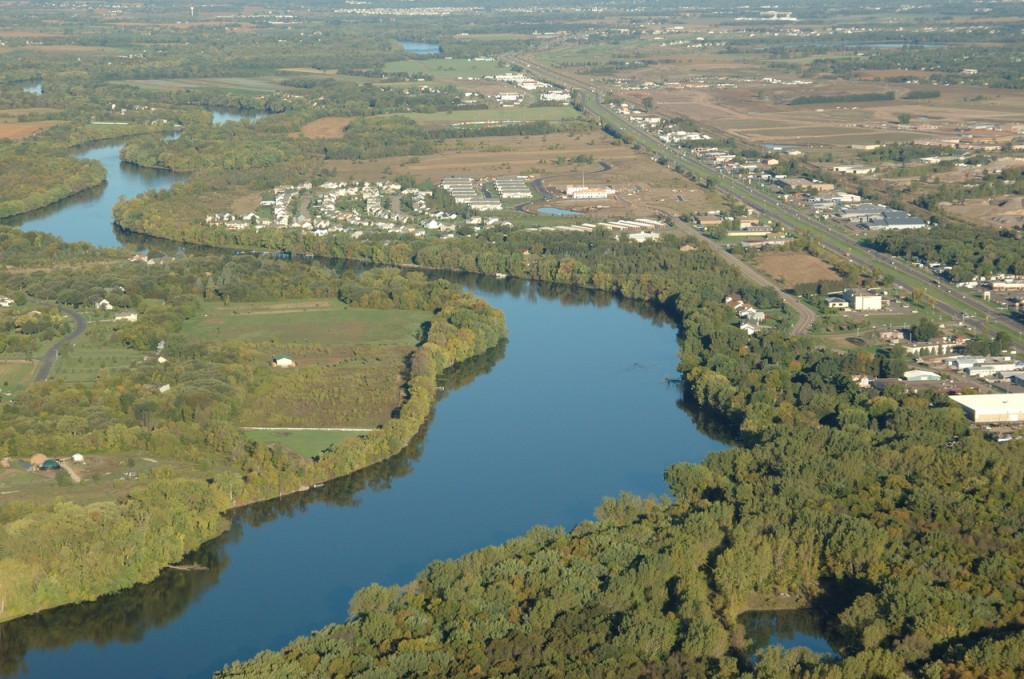By Jane Mazack
Exploring Daley Creek is a blog series that investigates the biological and physical processes at work in a small stream in Minnesota and what it means to consider rivers in a scientific framework. Follow along to learn more about life in the stream and its broader connections, both in the present and as we consider a future of climate change.
“Rivers have the power to connect us.” This opening statement by the University provost caught my attention. It was the reason that we were all here – the Mississippi River. That common thread was apparent throughout the diverse discussions of “The Once and Future River” symposium, which included scientists, historians, Native scholars, artists, and community leaders.
Mississippi River. Photo from the Institute for Advanced Study, UMN, all rights reserved.
River relationships are complex; they encompass the human and the non-human, the objective and the conjectured, data and narratives, and history and the future. Daley Creek is not only defined by its ecology, but also by its hydrology and geology, and also by its history and community stories.
Last week’s symposium brought people together by their common relationship with the Mississippi River. At the same time, it celebrated the diversity in perspectives, stories, and understandings that were brought together. This wide-ranging expertise presents the opportunity for collaborative discussions and solutions – ones that would not be possible without interdisciplinary voices.
When we think of interdisciplinary work, we often think of two closely related fields: geology and ecology, or anthropology and history. But what if we thought of interdisciplinary work as something bigger? What if it spans the humanities and the sciences, the academic and the community, the once and the future? How do we talk with each other, rather than past each other? Where do we go from here?
The writing and analysis of this blog series were conducted under the auspices of the John E. Sawyer Seminar “Making the Mississippi: Formulating New Water Narratives for the 21st Century”. Sawyer seminars are funded by the Andrew Mellon Foundation; further information about “Making the Mississippi” can be found here.
